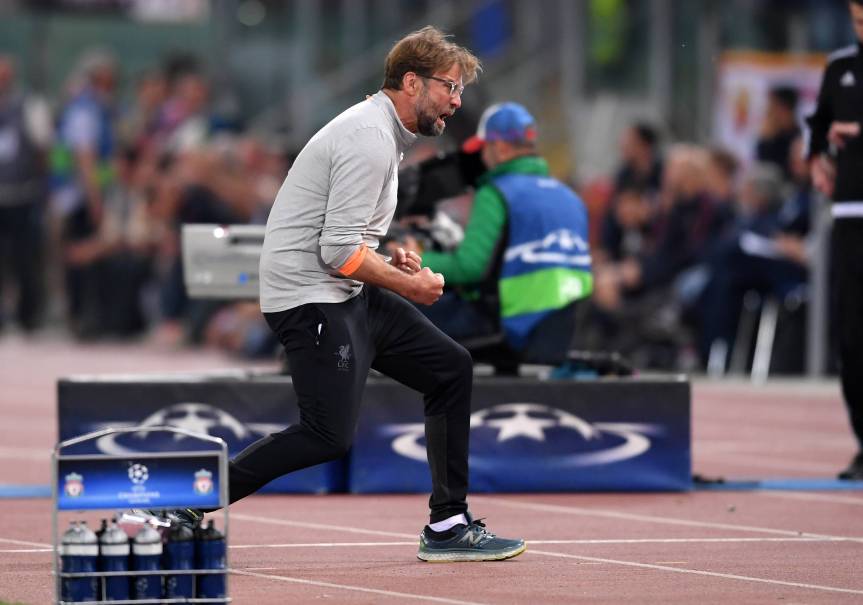CHELSEA’s hopes of winning the UEFA Women’s Champions League were dashed by holders Barcelona at Stamford Bridge in front of 39,000 people. Barca, who lost 1-0 at home to Emma Hayes’ side in the first leg, scored through Aitana Bonmati and Fridolina Rolfö to take the semi-final 2-1 on aggregate. Hayes was incensed about a red card for Kadeisha Buchanan and the penalty awarded to Barca that clinched victory, calling them “probably the worst decisions in UEFA Women’s Champions League history”. Barcelona, who have been in five of the last six finals, will play the winners of Paris Saint-Germain and Lyon in Bilbao at the end of May. Chelsea have been beaten in the competition with Barca three times in the past four campaigns.
With Liverpool’s title challenge rapidly unravelling and the body language of Jürgen Klopp and Mohammed Salah hinting at some discord in the camp, the wisdom of announcing the departure of the charismatic coach months before the end of the season has to be questioned. Liverpool have won just one league game in five, the latest setback being a 2-2 draw at West Ham. Much of the post-match discussion focused on the interaction between Salah and Klopp, who were clearly arguing as the player took the field as a substitute. Salah is in something of a bad patch and has scored just twice in eight games, both of which were penalties. Meanwhile, Liverpool have an agreement of a sort with Feyenoord to hire their manager, Arne Slot, as Klopp’s replacement. It was suggested that Slot may be helped when he takes over by the downturn in Liverpool’s form rather than a barn-storming end to the season as Klopp says farewell.
PSV Eindhoven have not quite won the Eredivisie, but their 8-0 victory at Heerenveen means it is all over bar the shouting. They have a 30-goal advantage in their goal difference versus Feyenoord and have scored 103 times in 31 games. PSV host Sparta Rotterdam on May 5, a game that will confirm their title victory. Feyenoord are at home to Zwolle later in the day.
Derby County are returning to the Championship after beating relegated Carlisle 2-0 at Pride Park. The Rams needed only a draw to secure the second promotion spot behind Portsmouth. Max Bird scored the first goal with a fifth minute swerving shot from outside the area and James Collins netted the second with a close range effort on the hour. Derby were relegated from the Championship two years ago while they were in administration. The 31,000 crowd gave club owner, David Clowes, who more or less saved Derby when he took over, a standing ovation.
The Croatian league is a two-horse race this season, with Rijeka putting great pressure on Dinamo Zagreb. One point separates the two teams, with Dinamo on top. Rijeka are a game in hand and play Lokomotiva today in Zagreb. The title rivals play on May 5 in Rijeka and later in the month meet in the two-legged Croatian Cup final. Rijeka were the last team other than Dinamo to win the Croatian League in 2017.

